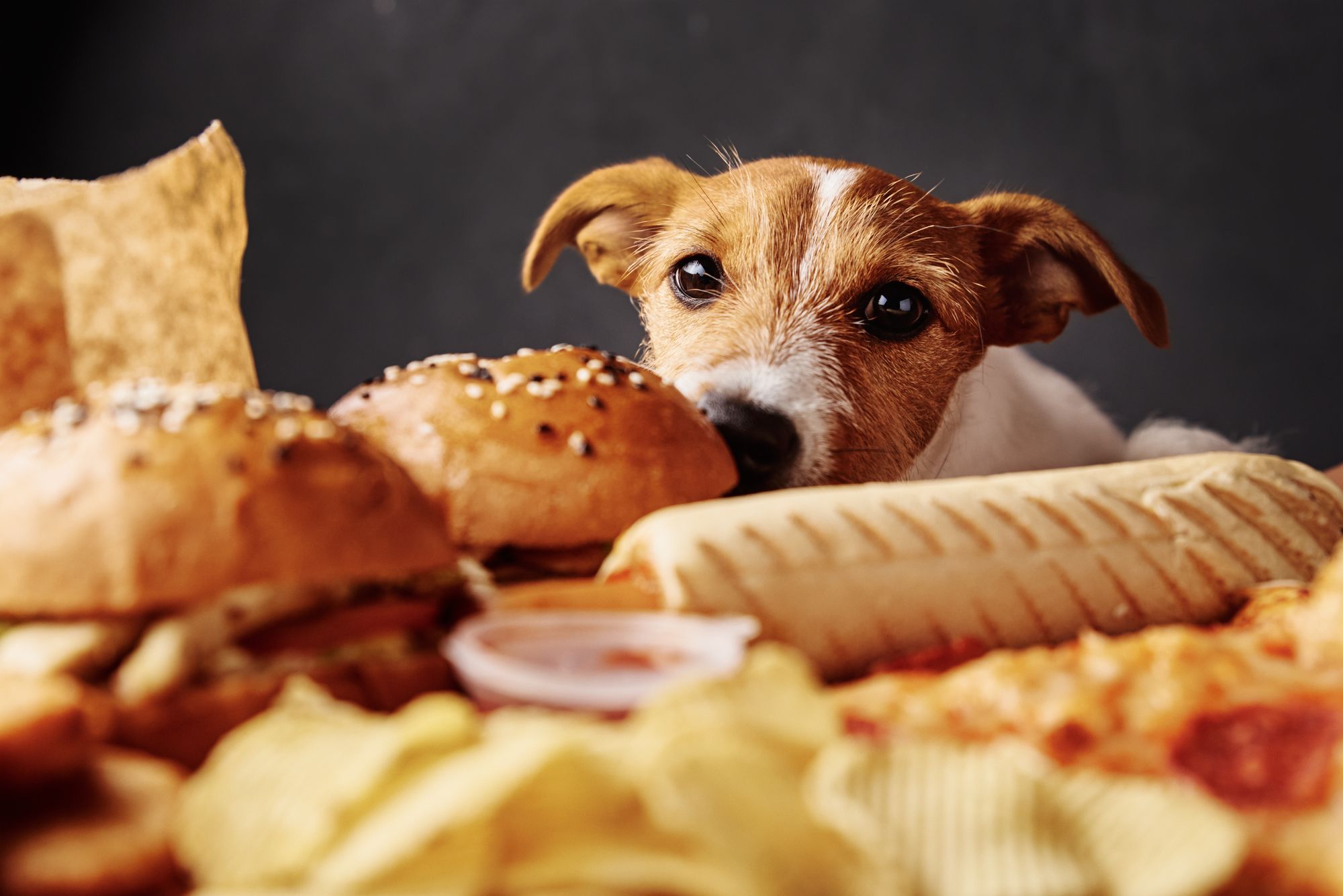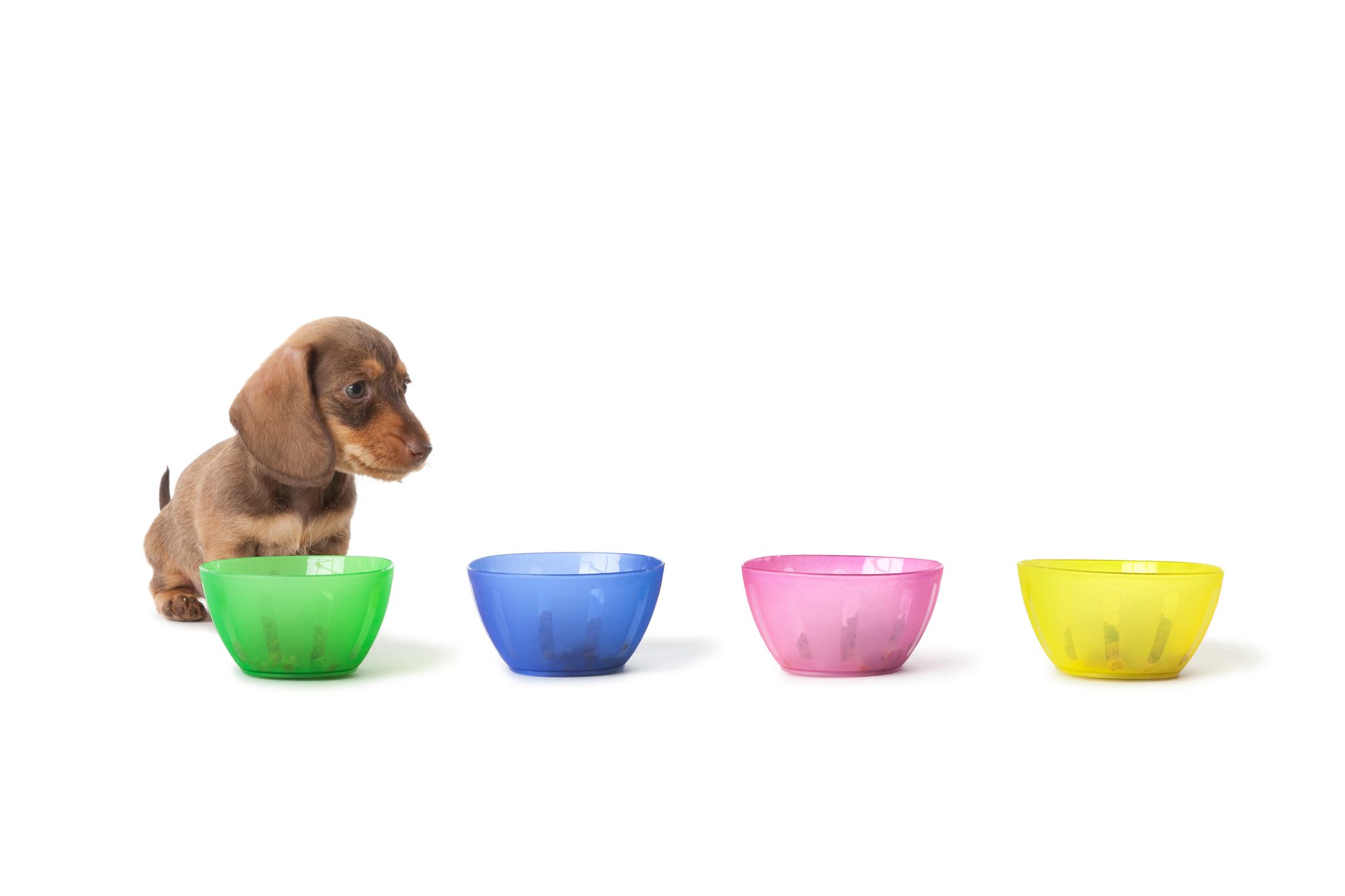What Are Refeed Days? Can They Boost Your Weight Loss Efforts?
Everything seems to work against you when you're dieting. Your energy levels drop and you're hungry all. the. time. Can refeed days help? Yes.

Dieting often means limiting or saying no to your favorite comfort foods, like your morning stack of syrup-topped, fluffy pancakes, afternoon glazed donuts, and late-night order-in pizza.
Of course, resisting temptations is (relatively) easy if you’re only doing it for a few days.
Spread the timeline out to weeks and possibly months, which is how long it'll typically take for anyone to reach their goal weight, and you've got a drastically different picture in hand.
The food cravings hit — hard.
And you find yourself doing a full-on Ned Fulmer (for context: read this) on your diet.
And it's not just for lack of self-control, either.
The dieting bit, not Ned Fulmer … just so we're clear. According to a 2017 study published in Social Psychological and Personality, researchers found that effortful self-control is consistently unrelated to goal attainment throughout all analyses.
So … if gritting your teeth and simply “toughing it out” won’t help you ride out the seemingly inevitable diet-induced food cravings, what’s your next best strategy?
Probably “refeed days”.
Refeed days = all-you-can-eat days?
First things first: what is a “refeed day”? Just so you know, refeed days are not buffet days. They are not synonymous with “cheat days” either.
Instead, refeed days are short periods (typically between 1 to 5 days) where you'd increase your calorie intake to estimated maintenance levels by increasing carbohydrate intake.
Read that again: maintenance levels.
Not sure what your maintenance levels are? Check out our calorie calculator here:

That means you can’t go into your favorite restaurant and order their whole menu — that’ll most definitely bring you right into the “excess” calorie intake territory.
What’s the point of refeed days?
Given how we started this article, you should have guessed refeed days could help you better manage food cravings. That's absolutely correct. But it can offer additional benefits, too, like …
#1: Mitigates metabolic adaptations
Your body prefers the status quo. It doesn't like when you lose weight.
So, when the numbers on the scale start dropping, it’ll fight tooth and nail to prevent further weight loss.
One way it does so is by decreasing your non-exercise energy expenditure (aka NEAT levels) via a phenomenon known as adaptive thermogenesis.
And guess what happens when your energy expenditure falls? That's right. If you wish to remain in a calorie deficit, you'll have to reduce your food intake further (as if you weren’t already starving!)
Struggling real bad with feel-it-in-your-bones hunger? These articles may help you out:


How do refeed days help with this?
Well, the increase in carb intake will likely help you feel more energetic — which means you may bring your NEAT levels back up again, granting you more leeway with your calorie intake.
#2: Improves adherence to your diet plan
Ultimately, refeed days provide you with a much-needed psychological break from calorie restriction. For example, let's say your "dieting calories" are 1,600, while your maintenance calories are 1,900.
An increase of 300 calories may not sound like much, but you might be surprised at how much you can fit in:
- 3 cups of cereal OR
- 1 medium-sized donut OR
- 1 large pizza slice OR
- 2 medium-sized pancakes
Indulging in these foods in a controlled manner could improve your adherence to your diet plan in the long term. Research agrees.
#3: May lead to better weight loss results
In the past, research has consistently shown intermittent dieting (which includes refeed days) to produce equivalent weight loss results to daily energy restriction.
But a recent 2020 study published in the Journal of Functional Morphology and Kinesiology showed that incorporating refeed days led to better weight loss results.
In it, researchers randomly assigned trained, reasonably lean participants into two groups:
- Group 1: Daily 25% calorie deficit for 7 weeks
- Group 2: 35% calorie deficit for 5 days, followed by 2 days at maintenance for 7 weeks
This resulted in a 25% net energy deficit for all participants. And … what did the researchers find at the end of the study? Both groups lost a significant amount of body fat, BUT:
- Group 1 (i.e., continuous energy restriction): Lost a significant amount of fat-free mass (which includes muscle mass) and experienced a significant reduction in resting metabolic rate (RMR)
- Group 2 (i.e., refeed): Reported non-significant losses in fat-free mass and RMR
What does this mean? Put simply, those in group 2 retained more fat-free mass (which is more metabolically active than fat mass) and burned more calories at rest than those in group 1.
Imaginably, this could help them better maintain their weight loss results in the long term.
Are refeed days right for you?
Can’t wait to give refeed days a go?
TBH, given refeeding's benefits, your excitement is understandable, but it's worth noting that refeed days may not be suitable for everyone. So ask yourself the following questions to determine if you should go ahead or hold off for now:
❌ Do you have a history of disordered eating or eating disorders? Refeed days may cause you to think of foods in increasingly black-and-white terms, that carbs are "good" while everything else is "bad".
🤔 Is it necessary for you right now? Are you coping well with your current diet plan (be honest with yourself)? If you are, then there’s likely no need for you to implement refeed days.
How often should you incorporate refeed days?
There are no official guidelines, but, in general, it depends on your body fat percentage:
- Men >10% and women >20%: Once every 2 weeks
- Men <10% and women <20%: Once or twice every week
Note that this is not a hard-and-fast rule. You can adapt it based on what you feel would work best for you (feel free to adapt it, too).
Calorie intake management + well-thought-out exercise regime = where the weight loss magic happens
Whether you're implementing refeed days or not, remember that you'll see better results by combining a well-thought-out exercise regime with proper nutrition management.
And, while cardio is important, strength training can improve your body composition (specifically, increase muscle mass), that'll prove beneficial in helping you lose weight — and keep it off.
Need help getting started with strength training?
Check out GymStreak. This smart, AI-powered workout planner will tailor your workout sessions to your unique fitness goals and ideal training frequency, so you never have to worry about looking and feeling lost in the gym.
Check it out:
Expert, Done-For-You Workout Plans Are a Click Away
No more feeling lost in the gym. Just download the app, and you're all set.
References
Campbell, B. I., Aguilar, D., Colenso-Semple, L. M., Hartke, K., Fleming, A. R., Fox, C. D., Longstrom, J. M., Rogers, G. E., Mathas, D. B., Wong, V., Ford, S., & Gorman, J. (2020). Intermittent Energy Restriction Attenuates the Loss of Fat Free Mass in Resistance Trained Individuals. A Randomized Controlled Trial. Journal of Functional Morphology and Kinesiology, 5(1), Article 1. https://doi.org/10.3390/jfmk5010019
Meule, A. (2020). The Psychology of Food Cravings: The Role of Food Deprivation. Current Nutrition Reports, 9(3), 251–257. https://doi.org/10.1007/s13668-020-00326-0
Milyavskaya, M., & Inzlicht, M. (2017). What’s So Great About Self-Control? Examining the Importance of Effortful Self-Control and Temptation in Predicting Real-Life Depletion and Goal Attainment. Social Psychological and Personality Science, 8(6), 603–611. https://doi.org/10.1177/1948550616679237
Peos, J. J., Norton, L. E., Helms, E. R., Galpin, A. J., & Fournier, P. (2019). Intermittent Dieting: Theoretical Considerations for the Athlete. Sports, 7(1), Article 1. https://doi.org/10.3390/sports7010022


